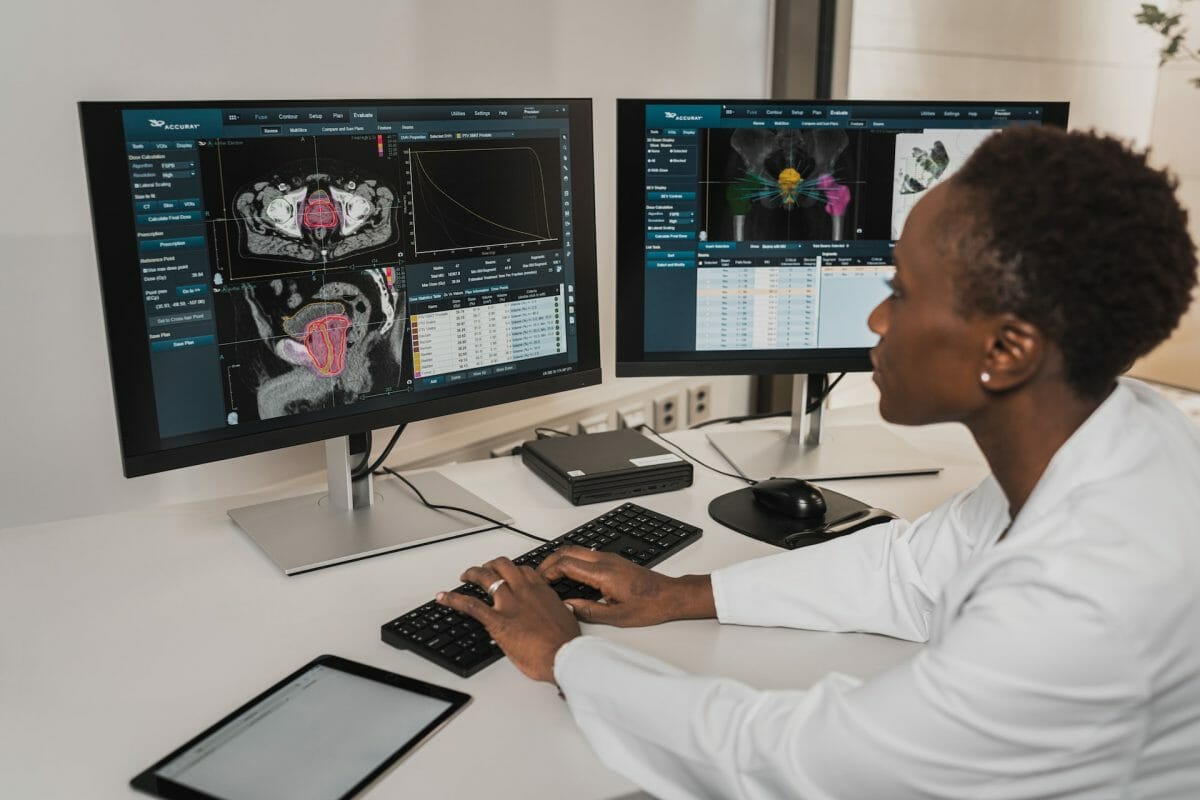Healthcare is an ever-changing field and one that relies heavily on technology. From X-rays and MRIs to robots performing surgery, modern technology plays a vital role in keeping us healthy. In this blog post, we’ll explore some of the ways healthcare has been revolutionized by modern technology.
Patients Are More Engaged And More Easily Reached
As a patient, being able to easily connect and interact with care team members is incredibly beneficial. Thanks to digital technology and software advances, this reality has become more achievable than ever. With increased patient engagement, access to instant communication, virtual therapeutic tools, and software, they are able to engage with their care providers faster and more often—allowing for improved overall well-being and informed health decisions. By collaborating with care providers on their own time, in the comfort of their own homes, patients have a better understanding of their needs and can be proactive when it comes to their healthcare.
The Rise Of Chronic Diseases And The Need For Better Treatment Methods
The rise of chronic diseases has posed a significant challenge for healthcare professionals and researchers worldwide. Diseases like heart disease, diabetes, and cancer have been majorly on the rise, threatening lives and economies alike. While a significant effort has been put into understanding the causes of these conditions, it is not enough; we need more new treatment methods that can effectively address the underlying causes of chronic diseases in order to make a difference.
One promising avenue is the development of advanced therapies through antibody discovery, which harnesses the body’s immune system to target specific disease pathways. By identifying and engineering highly specific antibodies, researchers are paving the way for precision treatments that could revolutionize the management of chronic conditions.
With rapid advances in technology, as well as a range of new medical techniques that are being developed every day, there is hope yet that better solutions may be found—solutions that will help reduce the number of people affected by chronic illnesses and improve the quality of life of those who are living with them.
How Technology Can Help Manage And Treat Chronic Diseases
Modern technology gives chronic disease patients a greater chance of managing and treating their ailments, making it possible to lead an active and healthy life. From apps and websites that enable doctors to track vital signs to diagnostic tools and even wearables that monitor metrics in real-time, new technological treatments mean fewer visits to the doctor and can provide medical professionals with deeper levels of insight into an individual’s condition.
For those struggling with debilitating conditions, advances in technology open up avenues of communication, access to specialized care, diagnosis accuracy, and a more complete understanding of health trends over time – including lifestyle habits and environmental factors. At its core, modern technology for chronic disease treatment is empowering people rather than limiting them.
The Importance Of Data Collection And Analysis In Healthcare
Healthcare organizations that prioritize data collection and analysis are in a much better place to make decisions about the care of patients. They are able to collect information about their processes and make modifications on the fly that can lead to improved results- including better patient outcomes, more efficient delivery of services, or cost savings.
Collecting data also allows healthcare facilities to analyze trends- enabling them to identify what’s working and what’s not so they can focus on strategies to improve. It’s clear that data collection and analysis are essential for providing top-quality healthcare, so entrepreneurs in healthcare should ensure they understand the importance of these two methods. A healthcare industry faxing service is a cost-effective way to communicate with patients and other healthcare professionals. A faxing service is also a secure method of sending and receiving sensitive information.
How Technology Can Improve Patient Care And Communication
Through the use of telemedicine apps and remote monitoring devices, physicians can treat patients remotely, send reminders to take medication, and even give patients access to their personal medical records. This means fewer trips to the doctor’s office and better continuity of care for those with chronic health conditions.
By having consistent communication with their provider, patients feel more in control of their health and have faster access to treatment that works best for them. All this contributes to improved patient outcomes as well as satisfaction. Even something like texting can be beneficial – by making it easier for doctor-patient communication, healthcare professionals are able to provide management plans that are tailored specifically to individuals, again leading to better health outcomes overall.
The Future Of Healthcare And How Technology Will Play A Role
From machine learning and artificial intelligence, which have led to critical breakthroughs in medical diagnosis and patient care, to remote monitoring technologies and telehealth options, it’s clear that the possibilities for technological improvements within healthcare are boundless. As progress continues to be made, especially with regard to patient access, quality care, and affordability of medical services, including innovations that streamline locum staffing workflow, both medical practitioners and patients alike will benefit from a significant leap forward in the realm of healthcare technology.
Ultimately, increased patient engagement and understanding of chronic diseases can empower individuals to better manage their well-being. This can be accomplished through improved technologies and access to data, as well as leveraging digital communication with healthcare providers. Technology has the potential to enable more proactive, personalized healthcare and treatments — leading to better outcomes. With a combination of modern methods and traditional strategies, healthcare providers personalize care by gathering comprehensive patient data, staying up to date with changes in medical best practices, and continuing research into new therapies for chronic illness.
